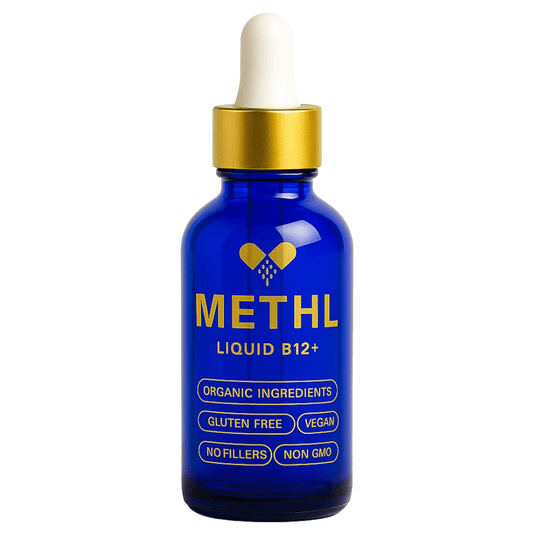In a world where health trends come and go, organic multivitamins have become a staple for many seeking to enhance their nutrition. However, with such popularity comes a slew of misconceptions. Let’s set the record straight by debunking common myths about organic multivitamins. It’s time to arm ourselves with the truth!
1. Organic Multivitamins Are Just Placebos
Many believe that organic multivitamins lack any real benefit and are merely a placebo. In reality, they provide essential nutrients that your body needs. The misconception arises from a misunderstanding of the word ‘organic.’ Some think it implies ineffectiveness, but studies show that these multivitamins can substantially improve nutrient levels in your body. By including a blend of vitamins and minerals, they effectively support overall health, which cannot be overlooked.
Moreover, the idea that they are simply placebos dismisses the extensive research supporting their benefits. When you’re low on certain nutrients, including vitamin D or B12, a high-quality organic multivitamin can be a game-changer. It’s important to approach the topic with an open mind and appreciate how these supplements play a valuable role in nutrition.
2. All Organic Multivitamins Are Created Equal
Not all organic multivitamins are the same. Differences in quality, sourcing, and formulation can significantly affect their efficacy. When you dive into the myriad of options available, it’s crucial to scrutinize the label. Premium brands often prioritize ingredient sourcing and bioavailability, which means the nutrients are more easily absorbed by your body. On top of that, third-party testing can ensure that what’s on the label is exactly what’s in the bottle.
Additionally, organic doesn’t mean an automatic superiority. For example, some products may contain fillers or binders that could dilute the effectiveness of the vitamins. Therefore, it’s worth doing your research to identify products that not only claim to be organic but also deliver on their promises of quality and absorption.
3. You Can Get All You Need from Diet Alone
While a balanced diet is crucial, many people struggle to get adequate nutrients through food alone due to factors like busy lifestyles and dietary restrictions. Our lives are often hectic, and even the healthiest eaters may find it challenging to meet their daily nutritional requirements. Several studies suggest that soil depletion, food processing, and lifestyle choices lead to lower nutrient content in the food we consume. Hence, an organic multivitamin can be an excellent insurance policy, filling in the gaps to keep your health on track.
In addition, not everyone has access to organic or nutrient-rich foods. Financial constraints may prevent some from consuming a completely balanced diet. This is where organic multivitamins become particularly important; ensuring that all individuals can still obtain essential vitamins and minerals to support their health regardless of their dietary circumstances.
4. More Is Better: Higher Doses Are Always Good
Some assume that taking higher doses of multivitamins leads to better health outcomes. This can be misleading as excessive amounts can be harmful. The body has a threshold for how much of particular vitamins or minerals it can handle, and anything beyond that can lead to toxicity. For instance, while vitamin C is water-soluble and excess amounts are usually eliminated, fat-soluble vitamins like A, D, E, and K can accumulate in the body and cause serious health issues.
Understanding the recommended daily allowances (RDAs) for various nutrients is vital. The idea that ‘more is better’ is a slippery slope that can endanger health. It’s better to stick to the dosages recommended by healthcare professionals or reputable product labels for optimal health benefits without risking adverse effects.
5. Organic Means Always Better Nutritionally
While organic ingredients often come with lower pesticide residues, it doesn’t always mean they are more nutritious than non-organic counterparts. Nutritional value can depend significantly on the type of plant, how it was grown, and the specific nutrients included in the formulation of the multivitamin. Furthermore, organic doesn’t always equal holistic; the source and method of extraction of the vitamins play essential roles in determining their effectiveness.
When evaluating organic multivitamins, look beyond the marketing hype. Some products may highlight their organic ingredients yet fail to deliver key nutrients or, worse, have inconsistent levels of efficacy. A good balance of organic doesn’t guarantee better nutrition; it requires a combination of smart sourcing, high-quality ingredients, and strategic formulations.
6. All Brands Are Trustworthy
Not every brand of organic multivitamin is reputable or transparent about their ingredients and manufacturing processes. Just because a product claims to be organic doesn’t mean it’s of high quality. Established brands often invest in rigorous quality assurance practices, giving you peace of mind about what you ingest. However, newer companies may lack this level of commitment or leave consumers in the dark regarding ingredient sourcing and production methods.
When considering a brand, do your due diligence. Check for certifications, third-party validation, and customer reviews. Being informed helps protect your health and ensures that what you’re buying aligns with your wellness goals. Always choose companies that value transparency and showcase quality as their top priority.
7. Vegan Multivitamins Are Less Effective
There is a misconception that vegan multivitamins aren’t as effective. Many are carefully formulated to meet nutritional needs effectively. High-quality vegan multivitamins can provide all the essential nutrients without compromising dietary preferences or ethical beliefs. With advances in nutrient sourcing, many brands are now utilizing innovative methods to deliver bioavailable forms of vitamins that cater to vegan diets.
It’s crucial to recognize that the effectiveness of a multivitamin isn’t solely determined by its source but rather by how well it aligns with the individual’s nutrient requirements. With careful planning, a vegan diet accompanied by an appropriate multivitamin can provide comprehensive nutritional support.
8. You Don’t Need to Consult a Doctor
Assuming all multivitamins are safe can lead to health risks. It’s important to consult a healthcare provider before starting any supplement regimen. Not every supplement is designed for everyone, and your individual health needs, medication interactions, and existing conditions can dramatically influence what you should take. Health professionals can provide valuable insights, recommendations tailored to your specific situation, and can help you avoid potentially harmful combinations.
Seeking expert advice ensures that you’re making informed decisions that support your overall health and wellness. So before reaching for that multivitamin, take a moment to consult with someone who prioritizes your health.
9. Organic Multivitamins Will Replace a Healthy Diet
Some think that taking multivitamins alone can replace the need for a healthy diet. They are meant to supplement, not substitute. While they can help fill nutritional gaps, no supplement can replicate the complex interactions and benefits of whole foods. For example, fruits and vegetables not only contain vitamins and minerals but fiber, antioxidants, and a myriad of phytonutrients that contribute to optimal health.
Relying solely on multivitamins might lead to a false sense of security regarding health choices. It’s essential to emphasize that a holistic approach, blending healthy eating with supplementation, produces the best results. Aim to cultivate a balanced diet that nourishes your body in conjunction with properly chosen organic multivitamins.
10. They’re Only for the Elderly
Another common myth is that only older adults need multivitamins. People of all ages can benefit from proper nutrient intake. In fact, the demands for certain nutrients may vary across different life stages, including childhood, adolescence, pregnancy, and even in active lifestyles. Young athletes, for example, often require additional vitamins and minerals to support their energy levels and recovery.
Therefore, it’s important not to overlook the multivitamin needs of younger populations. Rather, an organic multivitamin could serve as a supportive tool in maintaining peak performance and sustaining healthy growth throughout a person’s life.
11. Organic Multivitamins Are All-Natural and Completely Safe
While they contain natural ingredients, it’s essential to remember that ‘natural’ doesn’t always mean ‘safe’ in higher doses. Many natural substances can cause adverse reactions when consumed in excess, leading to complications. For instance, even something as seemingly harmless as herbal extracts can interact with medications or provoke allergies.
Ultimately, it’s vital to approach any supplement, organic or not, with an understanding of its potential effects on your health. Always read labels carefully and understand what you’re putting into your body. Moderation is at the heart of a balanced approach to supplementation and health.
12. Whatever Works for You Is Fine
Assuming any multivitamin is adequate can lead to deficiencies. It’s vital to choose the right one tailored to your unique needs. Just because a friend swears by a particular brand doesn’t mean it’s suited for your body’s requirements. Personalization in supplementation can make all the difference in achieving desired health outcomes.
Consequently, conducting thorough research and consulting with health professionals can help identify which nutrients you may be lacking and which formulations work best for you. Understanding that ‘whatever works’ may not be a one-size-fits-all approach will lead to more effective health strategies.
13. All Multivitamins Have the Same Absorption Rate
Absorption varies widely among multivitamins based on their formulation, meaning some may be more effectively absorbed than others. Factors influencing absorption include the form of the vitamin (such as natural vs synthetic), the accompanying nutrients, and even the individual’s digestive health. Certain vitamins work synergistically, meaning one can enhance the absorption of another, while others may compete and inhibit the effectiveness of others.
That’s why it’s important to choose a multivitamin designed for optimal nutrient absorption. Products claiming to have superior bioavailability might be a wiser choice, ensuring that you are getting the most out of every nutrient packed inside those tablets or capsules.
14. Children Don’t Need Multivitamins
Parents might believe that their kids can get all nutrients from food. However, some children may still require supplementation for overall health. Factors such as picky eating, food allergies, and busy schedules make it challenging to ensure that kids receive the necessary vitamins and minerals from food alone.
This is why pediatricians often recommend age-appropriate multivitamins for younger populations. A well-formulated organic multivitamin can be an effective aide in providing the nutritional support that growing bodies often need, sometimes far beyond what an ordinary diet can deliver.
15. Organic Multivitamins Are Just a Trend
Dismissed as a fad, organic multivitamins can provide genuine health benefits when chosen wisely and used properly. With rising awareness surrounding health and nutrition, it’s essential to recognize that trends can lead to informed choices if taken seriously. Many people are turning to organic products because they prioritize quality and the integrity of what they put into their bodies.
The push for transparency and better sourcing in the multivitamin industry signals a shift towards more responsible consumption. By focusing on what works and where it comes from, consumers can harness the benefits of organic multivitamins as part of a holistic approach to health rather than merely falling for a trend.





